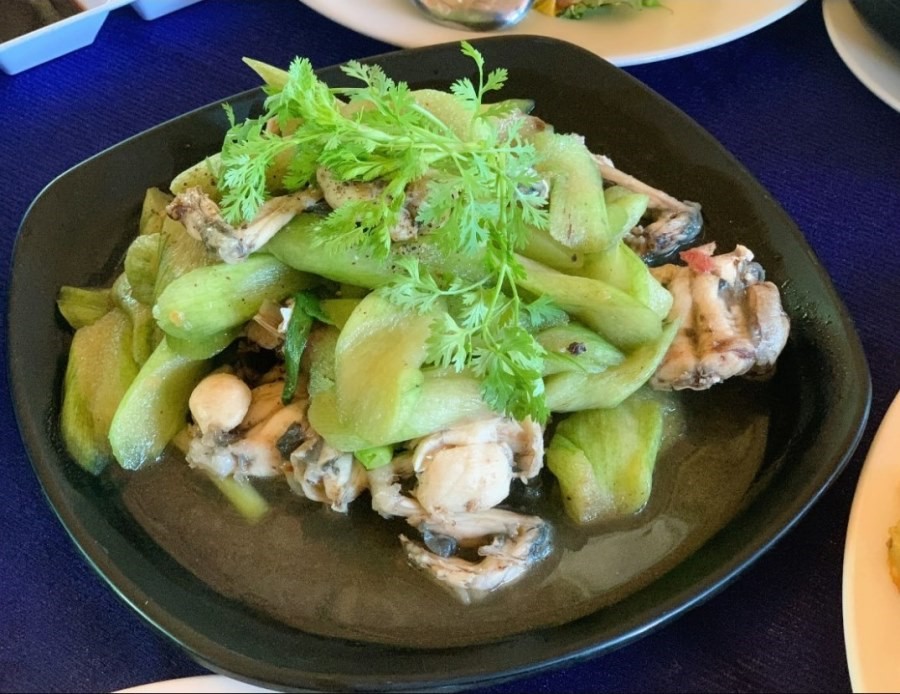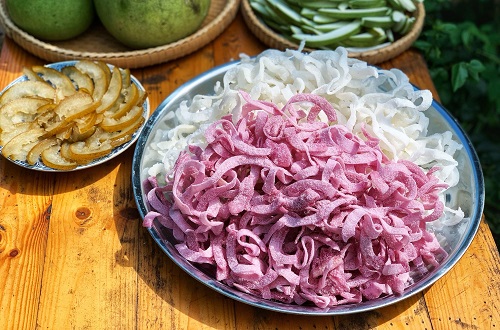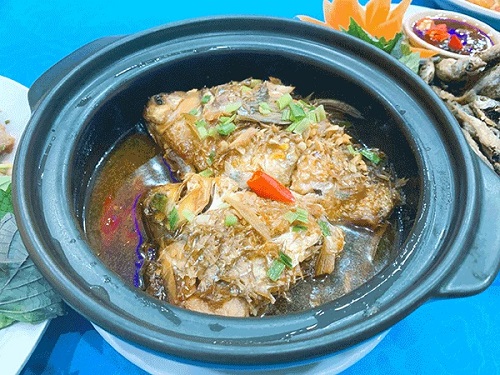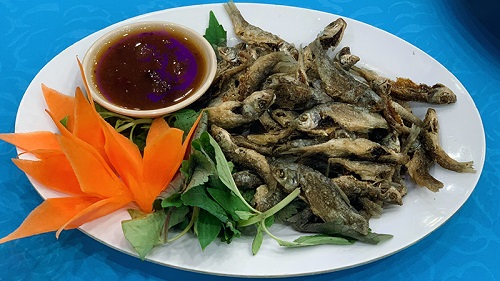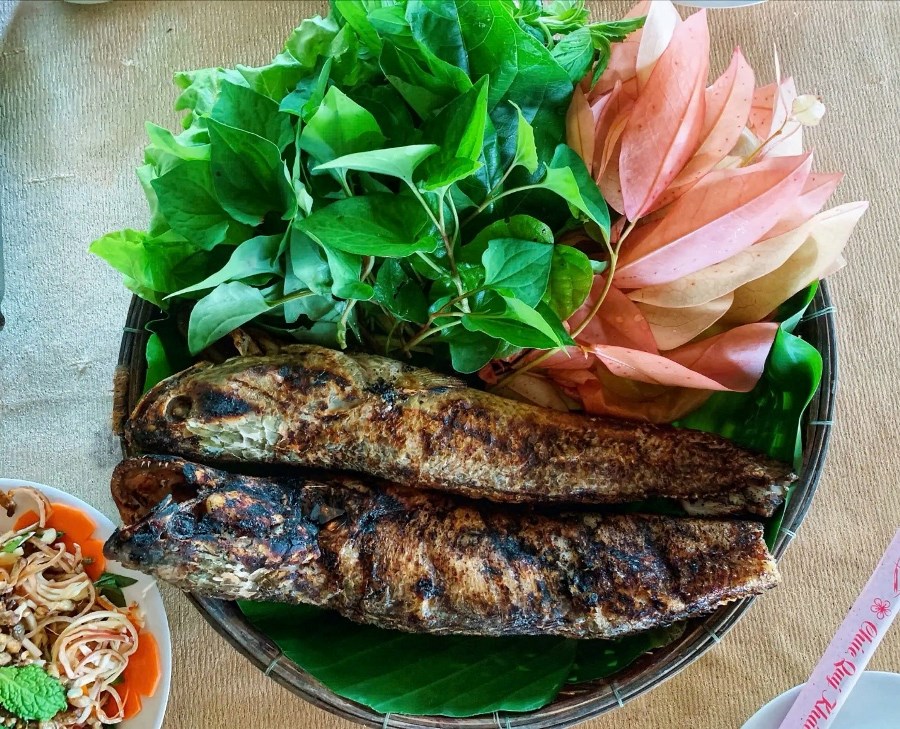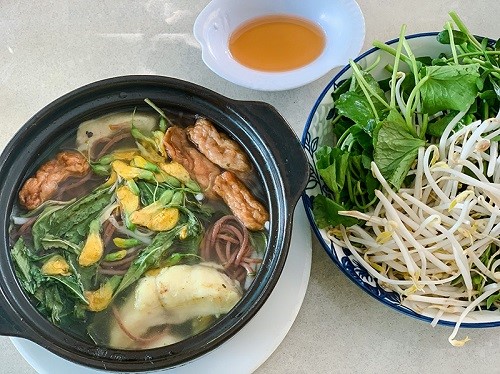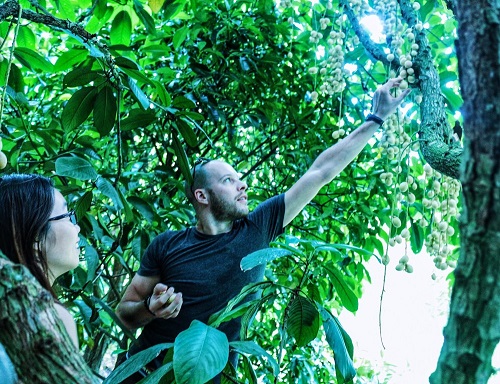
The Potential of Ecotourism
Can Tho is a riverside city with approximately 65 kilometers of riverbanks, enriched year-round by alluvial deposits. This natural setting has enabled Can Tho to diversify its fruit orchards. The network of islets and intricate canals also provides favorable conditions for the development of ecotourism. This form of tourism combines traditional elements with integration into the natural environment and local culture, thereby raising the awareness of tourists without causing harm to the local environment and culture. In Can Tho, this type of tourism has flourished in Phong Dien district, Binh Thuy district, and Thot Not district.
Phong Dien is often referred to as the green belt of Can Tho City. It boasts over 8,500 hectares of fruit orchards, yielding an average annual fruit output of over 105,000 tons. It is also a place where ecotourism has thrived, receiving significant attention in the city's green urban development. Mr. Vo Thanh Giup, Director of the Center for Trade Promotion, Tourism, and Heritage Management of Phong Dien district, stated: "Phong Dien has more than 30 fruit orchard points linked to serving tourism. Ecotourism is Phong Dien's strength, and over the years, the locality has created conditions for orchard owners and businesses to develop this type of tourism in an environmentally friendly and sustainable direction." Accordingly, the area of fruit orchards in Phong Dien has continuously expanded in recent years, focusing on native and local specialty trees such as Ha Chau berries, mangosteen, and durian. Highlighted areas include the communes of My Khanh, Nhon Ai, and Nhon Nghia, which feature a variety of fruit trees. Mr. Nguyen Huu Hoang, Deputy Director of My Khanh Tourist Village, explained: "In recent years, My Khanh Tourist Village has expanded its area to 30 hectares, with one-third of the area being fruit orchards. Depending on the season, we have about 20 types of fruit suitable for serving tourists."
Meanwhile, Mr. Tran Thien Canh, owner of the Ut Dzach hammock rice vermicelli facility, added: "My garden has two specialty fruit trees, Ha Chau berries and mangosteen, both of which have been cultivated for many years. Visitors can not only experience making rice vermicelli here but also explore the orchard. My place is well-loved by international visitors for its cool and natural environment."
In addition, eco-tourism destinations in Binh Thuy and Thot Not also attract numerous tourists. Among them, Son Islet in Binh Thuy is renowned for its lush green orchards throughout the year. Benefiting from alluvial deposition, the orchards on Son Islet are diverse and abundant, featuring various fruit gardens such as Nam Phuoc rambutans, Nam Minh longans, Thanh Tam guavas, Sau Canh longans, Phuong My pomelos, and more. Ms. Phan Thi Kim Phuoc (Nam Phuoc), owner of Song Khanh orchard on Son Islet, explained: "On Son Islet, many orchards primarily utilize home gardens for tourism. Depending on the characteristics of each house, we offer different garden services, allowing tourists to choose which gardens they want to visit. In addition to the familiar fruit varieties from longstanding gardens, we also experiment with new fruit varieties to improve quality and serve tourists better. For instance, in my rambutan orchard, I grow up to 3-4 different varieties. We conduct trials to determine which ones yield better quality fruit, and those become the primary ones, enhancing the overall quality of the orchard." Sharing a similar perspective, Ms. Le Hong Diep, owner of Co Diep guava orchard in Thot Not, said: "I grow guavas using organic methods, ensuring that the trees bear fruit year-round while maintaining quality. Therefore, we often find that we can't meet the demand of tourists. In the near future, I plan to diversify by planting a few new types of trees, such as golden star apple fruit, to cater to the diverse preferences of tourists.
Sustainable Ecotourism Development

Tourists visiting the rambutan orchards on Son Islet, Binh Thuy
Ecotourism in Can Tho is experiencing robust growth; however, there is still untapped potential. Recognizing ecotourism as one of its strengths, the Can Tho tourism industry has multiple directions for advancement. Each locality has its own specific development plan. Notably, Phong Dien is currently drafting a plan and development direction for ecotourism. This includes implementing the division of agricultural belt development areas connected with ecotourism, focusing on ecotourism development zones, resorts integrated with garden experiences, and specialized areas for vegetable cultivation, ornamental flower villages, and landscape tours. Can Tho also has an ongoing ecotourism project, the Phong Dien Ecotourism Area, spanning a total area of 40 hectares. The project aims to leverage the advantages of the riverine environment and rural charm to create an amusement park combining ecotourism and relaxation, featuring resorts, homestays, dining venues, unique river-themed entertainment, and immersive rural cultural experiences.
Meanwhile, in Thot Not, there is a plan for the development of Tan Loc tourism, which is based on leveraging the ecological landscape, agricultural and cultural aspects of the local community's river life to create unique tourism products. The goal is to transform Tan Loc into one of Can Tho's attractive destinations for ecological experiences, community-based tourism, and upscale vacations. The development space for Tan Loc tourism is outlined as follows: establishing a central tourism service area for reception and information provision about island ecotourism; homestay experience points on fish cages, traditional houses, and local gardeners' homes; upscale eco-resort areas located in the northern and southern ends of the island. In the northern part of the island, the development will follow an ecological, rustic village model, while the southern part will adopt a high-end, modern, and luxurious approach to cater to high-spending visitors. Consequently, Thot Not is inviting investment in various infrastructure projects, including pier systems, transit stations, and the construction of distinctive tourism products.
At Con Son Island, there is also a project called 'Building, Exploiting, and Developing the Community Tourism Brand of Son Islet' led by the Department of Science and Technology of the city. The project aims to establish and develop the collective brand ‘Son Islet Community Tourism’ to optimize the potential advantages of local tourism on Son Islet. With this project, Son Islet tourism will be systematically positioned as a brand through the creation of a collective label, enhancing the quality of Son Islet Community Tourism products, and striving for sustainable development. Ms. Le Thi Be Bay, a member of the Son Islet Agricultural Tourism Cooperative, stated: 'In addition to branding Son Islet, we hope that this project will serve as a foundation for leveraging the local community tourism advantages of Son Islet, with a focus on green, sustainable development, and environmental preservation.'
In the 'Development of Can Tho's Unique Products Project, 2018-2020, with a Vision to 2030,' the importance of ecotourism is clearly defined as one of the tourism products requiring significant investment and development. Alongside MICE tourism (Meetings, Incentives, Conferences, and Exhibitions) and river tourism, ecotourism is a crucial element in creating distinctive products for Can Tho. However, the development of ecotourism necessitates comprehensive planning, focused direction, and investment. Ms. Dao Thi Thanh Thuy, Deputy Director of the Department of Culture, Sports, and Tourism of the city, mentioned: "Phong Dien, Thot Not, and Binh Thuy all have strengths for the development of ecotourism and agritourism. We are coordinating with localities to establish suitable development directions for tourism products, encouraging the preservation of garden spots, expanding orchards combined with agriculture and tourism, and promoting sustainable development."
Source: Can Tho News - Translated by Hoang Dat







